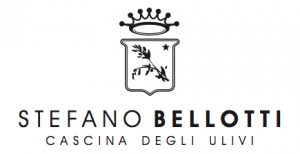Works in the cellar
Wine is, by definition, the transformation of grape juice via fermentation. Any other addition, subtraction and any forcing of the process are devices used to fabricate drinks “based on” fermented grape juice.
At Cascina degli Ulivi we have always strived to produce natural wines, with no additives, using only the grapes from our vineyards, farmed with biodynamic methods.
The art of winemaking is that of overseeing a natural process in its various stages. For each wine we choose a different vinification method in an effort to “interpret” in the best of ways our grapes. We do not use selected yeasts, nor enzymes, nor any other type of oenological additive.
The entire vinification, for both white and red wines, happens without the addition of sulphites. Hence all of our wines have less than 40 mg/litre of total sulphites.
Aging reserve wines
Our company is one of the few that has made and is making great efforts to age the reserves of its most important wines. In this way, we provide a heritage of real and deep wine culture, with bottles that become authentic jewels and that still arrive on the market at prices that are not very low, but that fall within the possibilities of everyone. Maybe not daily, but certainly for the beautiful occasions! This is also an investment we have made, not so much for income, but for sharing that joy of life, of which wine must be the first messenger…
The use of sulphites is essentially an agricultural problem: one canot make wines without the use of sulphites, with common grapes. You need real fruit, stemming from plants that have a strong root apparatus, well set in the depths of the Earth, as well as a healthy canopy, one that can capture a great deal of light (see our page on biodynamic viticulture).
Nowadays, the words organic wine have little meaning and hardly guarantee anything. This wine can very well be the result of a camouflaged industrial agriculture or being organic merely on paper. During vinification all sorts of manipulations are perfectly allowed. Industrially produced yeasts, which more often than not are OGM, extreme physical tratments, fining, acidification, de-acidification, etc. Organic products laws state that yeasts and enzymes should not be OGM, but European Laws state the principle of equivalence between OGM and non-OGM micro-organisms so they can all be declared OGM free even if they are not in the same way as artificial flavours are classified under natural flavours.
Potassium metabisulfate has two main functions:
- the first one is as an anti-bacterial so it is used on juices, grapes and must. With sensible harvest management, scrupolous cellar hygiene, and perfectly ripe grapes it is easy to do without it.
- The other function of sulphites is as an antioxydant (the Italian law prescribes up to 220 mg/l whereas AIAB, the organic control body opts for max 80 mg/litres) and here we have two ways we can do without them.- One is to rely heavily on technology, making the vinification in a highly reductive ambient with much energy expenditure by having to control vat temperature, invest in costly machinery and add yeasts, enzymes and nutrients of industrial origin. In such cases I often think: “give us sulphur back!” because the manipulation is so heavy and the risk in using additives so uncertain that low dosages of sulphites are more preferable. Nowadays, it is possible to arrive at bottling with sulphites levels lower than 40-50 mg per litre and with such quantities the threshold of toxicity of suphites is higher than that one of drunkeness, since one needs over two litres of wine to reach it.
– The other way we can do without sulphites is following the natural way of wine making using “managed oxydation” where oxydation is no longer viewed as a monster to fight but as a friendly component of wine. But this is only possible when using grapes of excellent quality. No yeasts, no enzymes, no vitamins, no salts. A natural fermentation and a careful use of lees. Lees contain many colloids that have an anti-oxydant and protective function but to do so, one needs to vinify in wood and that entails more effort and higher costs.
“By using this method I have always produced red wines with no sulphites and a guaranteed stability of decades and lately I have also managed to produce white wines with no sulphites added that not only they are stable, but have – if anything – the opposite problem: they need a couple of years in a bottle to reach optimum harmony, a quality that they will maintain for several years thereafter“, says Stefano Bellotti.
Bottling cellar
At Montemarino you will find our winery, while our bottling cellar is located at the Cascina in Novi Ligure. Here we also do the storage of bottles, the preparation of orders for our distributors all around the world, and the aging of reserves.
Emma, responsible for this winery since 2011, is part of the Spinola family, which has been very important in the history of Liguria (comparable to the history of the Medicis’s family in Florence). It is one of the oldest families in Europe, whose ancestors are traceable until the 10th century. The family owns the Castello di Tassarolo (Tassarolo’s Castle), in the Alto Monferrato between Novi Ligure and Gavi, since the fourteenth century. Emma still lives there today, and we can organize tours and tastings at the castle! Built in the twelfth century, and still in perfect condition, the castle has all the magnificent sobriety and essential contours of the medieval stronghold. From the Filagnotti’s vineyard, there is a wonderful view of the castle.
Find out more about Cascina degli Ulivi…

Biodynamics
Biodynamics is presently the best method for a healthy, living, agriculture able to enrich soils where it is applied, hence guaranteeing sustainability for the future. This way the soil gives tasty and authentically nutricious fruit that truly express its terroir.

Terroir
Cascina degli Ulivi is located on the Gavi hills in South Piedmont and is part of the Alto Monferrato territory. This is historically a place of passage, a region rich in fortresses, fortified buildings and castles. It is also one of the most famous Italian wine regions in the world.

Works in the Vineyard
We have 22 hectares of vineyards and the biodynamic farming method applies to all of them. The cultivation method is espalier Guyot.

Our wines
Without any additives; made only from the grapes of our vineyards cultivated with the Biodynamic method.

















